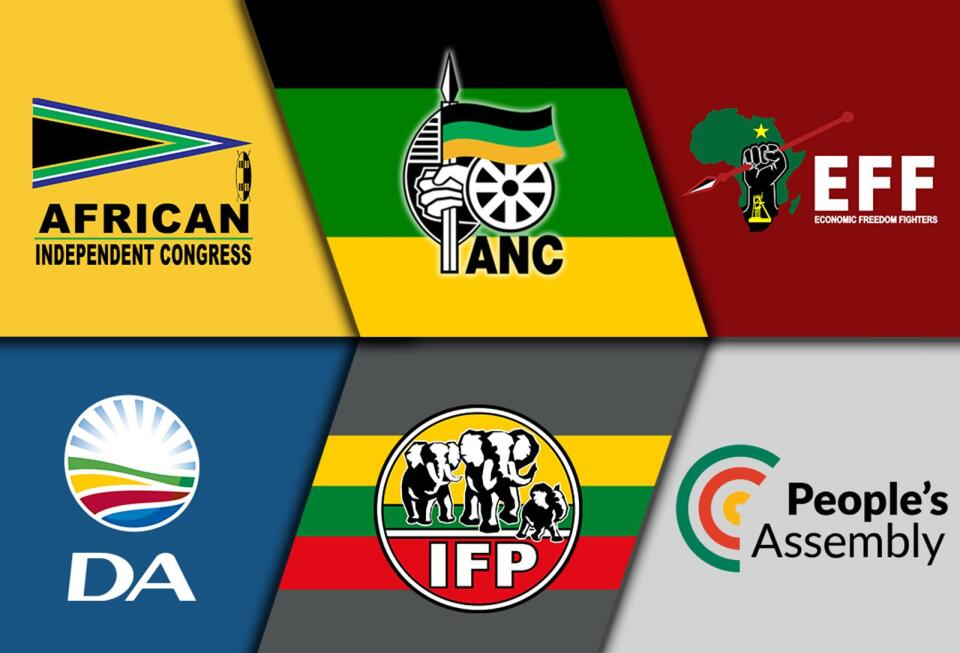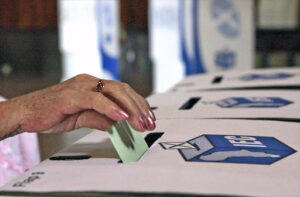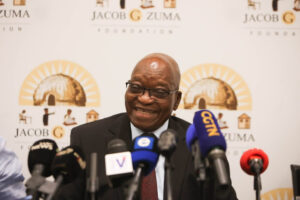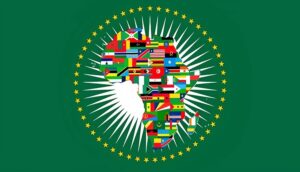In a democratic society like South Africa, the power of the vote cannot be underestimated. Yet, the act of voting transcends merely placing an ‘X’ on a ballot paper. It involves aligning oneself with a political entity. Whether it be a party or an independent candidate that best represents one’s views, hopes, and concerns for the nation. This alignment is not always straightforward. With a plethora of issues dominating the South African political landscape. From land reform to economic inequality, how does one sift through the noise to find a resonating political melody?
This article aims to be a tool to help you identify your political beliefs by focusing on the significant issues that South Africa faces today. By understanding the nuances and different viewpoints surrounding these issues, you may find it easier to align yourself with a political party or ideology that best represents your convictions. Rather than profiling specific parties, we focus on you, the voter, and the issues that may sway your ballot choice.
Understanding Political Spectrum and Ideology
In the realm of politics, words like ‘conservatism,’ ‘liberalism,’ and ‘socialism’ are often tossed around, but what do they really mean? More importantly, how do they manifest in the South African context? Understanding these ideologies is a crucial step in identifying your own political leanings.
Conservatism in South Africa may focus on maintaining traditional social values and may be wary of rapid change, particularly in areas like land reform or affirmative action. Liberalism, on the other hand, generally advocates for social equality and is more open to reforms. Socialism in South Africa’s context often places a strong emphasis on social equality and wealth redistribution. There are, of course, more nuanced ideologies like libertarianism, which stresses individual freedom, and nationalism, which places importance on national identity.
These ideologies don’t just float in the air; they shape policy and influence political affiliations. For instance, a party with a socialist leaning might strongly advocate for wealth redistribution through progressive taxation. On the other hand, a conservative party might focus on creating a business-friendly environment with low taxes to stimulate economic growth. By understanding where you stand on the spectrum of political ideologies, you can better grasp how a party’s or candidate’s platform might align with your own views.
Key Issues in South Africa
Now that we’ve scratched the surface of political ideologies, let’s delve into the critical issues that these ideologies seek to address in the South African landscape. Issues such as land reform, economic inequality, education, healthcare, crime and safety, social justice, and environmental sustainability are shaping the national conversation and can be hot-button topics during elections.
Each issue carries its own set of complexities and is deeply entwined with South Africa’s unique history and current socio-economic conditions. How a political party approaches these issues often reveals much about its underlying ideology. As you read on, consider how each party’s stance on these key issues aligns with your own beliefs and priorities.
This article aims to dissect these major topics, presenting varied viewpoints so that you, the reader, can form your own opinions. And in doing so, you might just find that you’re one step closer to figuring out where you fit in South Africa’s multifaceted political tapestry.
Land Reform
Historical Context
Land reform is not just a policy discussion in South Africa; it is a deeply emotional and historically laden topic that dates back to the colonial era and the years of apartheid. During apartheid, the vast majority of arable land was allocated to a small white minority, while Black South Africans were forcibly removed from their lands and restricted to less fertile areas. Today, the question of how to redress this historical injustice remains one of the most divisive and complex issues in South African politics.
Current Proposals and Viewpoints
Proposals for land reform range from maintaining the status quo to radical changes such as land expropriation without compensation. Parties like the African National Congress (ANC) have been cautiously moving towards more aggressive land reform policies, including considering conditional expropriation. On the other side of the spectrum, the Democratic Alliance (DA) advocates for a more market-oriented approach, focusing on land redistribution in a manner that protects property rights. The Economic Freedom Fighters (EFF), meanwhile, call for a more radical overhaul, advocating for the nationalization of all land.
As you ponder land reform, consider what you believe is the best way to redress historical injustices while fostering a stable, prosperous society. Should the focus be on compensation, economic viability, social justice, or a blend of these?
Economic Inequality
Current Statistics
South Africa has one of the highest levels of income inequality in the world. According to the World Bank, the country’s Gini coefficient—a measure of inequality—was estimated to be around 0.63 in 2021. This stark inequality is also evident in the rates of unemployment, which disproportionately affect young people and particularly those from historically disadvantaged communities.
Policy Solutions from Various Political Corners
Addressing economic inequality is on the agenda of virtually every political party, but the methods proposed vary widely. The ANC often focuses on social grants and community development projects aimed at poverty alleviation. The DA tends to prioritize creating a conducive environment for businesses, arguing that job creation is the most effective way to tackle inequality. The EFF puts forward more radical solutions, such as nationalizing key industries to redistribute wealth.
As you think about economic inequality, consider which policy solutions resonate with you. Do you see inequality primarily as a problem to be addressed through social welfare, through market-driven solutions, or through a radical economic overhaul?
Your stance on these issues can offer invaluable insights into which political ideology—and by extension, which party—you may find most aligned with your values. This article aims to guide you through these complex questions with balanced reporting, adhering to the principles set by the South African press code.
Education
Importance in the National Conversation
Education holds a significant spot in the South African national discourse, often seen as a cornerstone for addressing many of the country’s broader socio-economic challenges. A well-educated populace is not only crucial for economic growth but is also instrumental in nurturing an informed electorate and active citizenry. However, South Africa’s education system is a study in contrasts, with world-class institutions on one hand and struggling public schools on the other, often reflecting the country’s broader inequalities.
Varied Perspectives on Improving Education
Various political entities have different approaches to solving the educational puzzle. Parties like the ANC emphasize increased funding for public schools and greater access to tertiary education. The Democratic Alliance (DA), while also advocating for improved funding, tends to push for educational reforms that include performance metrics for teachers and greater school choice for parents. Groups like the EFF call for even more radical changes, including decolonizing the education system and providing free tertiary education for all.
As you contemplate the state of education in South Africa, ask yourself what you believe are the most pressing issues. Is it unequal access to quality education, outdated curricula, teacher quality, or perhaps something else? Your viewpoints on these matters can serve as a compass pointing you toward a political affiliation that best mirrors your educational priorities.
Healthcare
State of Public vs. Private Healthcare
South Africa’s healthcare system mirrors its education system in many ways, particularly in the gap between public and private services. Private healthcare in South Africa is of a high standard but is accessible primarily to those who can afford it. Public healthcare, while widely accessible, often suffers from underfunding, outdated facilities, and a shortage of healthcare professionals. This divide in healthcare quality is a microcosm of the larger issues of inequality plaguing the nation.
Policy Ideas for Reform
Proposed solutions for healthcare reform are as varied as the parties suggesting them. The ANC has been working toward a National Health Insurance (NHI) system aimed at making healthcare more accessible for all South Africans. The DA’s focus leans more toward improving the quality of public healthcare while maintaining a role for private healthcare providers. The EFF advocates for a state-controlled healthcare system, aiming to minimize the role of private healthcare and focus on community health services.
As you consider the future of healthcare in South Africa, think about what matters most to you. Is it the quality of care, accessibility for all citizens, or perhaps the efficiency of service delivery? Your perspectives on healthcare can guide you toward a political ideology and party that aligns with your wishes for the health of the nation.
By exploring your stance on these issues—alongside land reform and economic inequality—you’re adding more layers to your understanding of where you fit within South Africa’s diverse political landscape. Rest assured that this article is committed to providing you with balanced and neutral reporting in accordance with the South African press code.
Crime and Safety
Crime Rates and Public Sentiment
Crime and safety are issues that loom large in the minds of many South Africans. According to the South African Police Service’s annual report, violent crimes such as murder and robbery remain a significant concern. Public sentiment often reflects a heightened sense of urgency for solutions, with community protests and social media campaigns highlighting the collective desire for a safer society.
Approaches to Reducing Crime and Increasing Safety
Political parties diverge in their strategies for tackling crime. The ANC typically focuses on community policing and social programs aimed at addressing the root causes of criminal behavior, such as poverty and lack of education. The DA often calls for stricter law enforcement and judicial reforms to speed up the prosecution process. Meanwhile, parties like the EFF advocate for systemic changes that address inequality, seeing it as an underlying cause of crime.
As you consider crime and safety, reflect on what you believe to be the most effective strategies. Is the solution more police officers on the streets, community engagement, social programs, or perhaps a combination of these? Your beliefs on this issue can significantly influence which political party you might find most aligned with your vision for a safer South Africa.
Social Justice and Equality
The Ongoing Struggle for Racial and Gender Equality
Despite strides made in the years since apartheid ended, the struggle for social justice—particularly concerning racial and gender equality—continues to be a defining issue in South Africa. Discrimination based on race, gender, and sexual orientation is legally prohibited, yet disparities remain in employment, education, and representation in various sectors.
Policy Solutions that Aim to Address These Issues
Political parties bring different philosophies to the table on how to advance social justice. The ANC has historically been at the forefront of the social justice movement, implementing policies like Black Economic Empowerment (BEE) and gender quotas in government positions. While the DA is supportive of equal opportunities, it often criticizes such quota systems, advocating instead for a merit-based approach. The EFF pushes for more radical solutions, such as land redistribution and reparations, as a means to achieve social equality.
As you ponder social justice and equality, think about the avenues you believe are most effective for enacting change. Do you favor policies that specifically aim to level the playing field, or do you lean toward a more universal, merit-based approach? Again, your perspectives on this topic can be a useful indicator of which political ideology and party you might find most congruent with your own beliefs.
Navigating the intricacies of these vital issues will not only deepen your understanding of the nation’s challenges but also provide a clearer picture of your own political alignment. This article, adhering to the balanced reporting standards of the South African press code, aims to assist you in that journey.
Environmental Concerns
Importance of Sustainability
As conversations about climate change and environmental degradation gain traction globally, sustainability has become an increasingly important issue in South Africa as well. Given the country’s rich biodiversity, the stakes are high. Environmental concerns touch on a range of topics from water scarcity and land degradation to sustainable energy and wildlife conservation.
Different Approaches to Environmental Preservation
Political stances on the environment can vary dramatically. The ANC has increasingly included environmental policies in its platform, such as promoting renewable energy and sustainable land use practices. The DA, while also supportive of renewable energy, often emphasizes the role of innovation and private sector involvement in achieving sustainability. The EFF takes a somewhat different approach, arguing for community ownership of natural resources and stricter regulations on industries that are heavy polluters.
As you think about environmental concerns, consider what you believe to be the most urgent issues and the most effective solutions. Do you prioritize immediate action over long-term planning? Do you favor government intervention or private sector solutions? Your stance on these questions can provide insight into which political party’s environmental platform might resonate with you.
Self-Reflection: Your Stances on the Issues
At this juncture, it may be beneficial to take a moment for introspection. Below are some guided questions to help you ponder where you stand on the key issues discussed:
- Land Reform: Do you believe in maintaining the status quo, incremental reform, or a more radical reorganization of land ownership?
- Economic Inequality: Are social welfare programs, market-driven solutions, or systemic economic changes the way to go?
- Education: What are your priorities for improving education—increased funding, performance metrics for teachers, or a revamped curriculum?
- Healthcare: Is universal healthcare a right for all, or is a mixed public-private system more practical?
- Crime and Safety: Do you think that community engagement, stricter law enforcement, or social programs are the most effective way to reduce crime?
- Social Justice and Equality: Do you favor specific policies aimed at leveling the playing field, or do you prefer a more universal, merit-based approach?
- Environmental Concerns: What are your most pressing environmental concerns, and what types of solutions do you favor—government-led or private sector-driven?
By reflecting on your answers to these questions, you’re one step closer to identifying where you might fit in South Africa’s complex political spectrum. As always, this article adheres to the balanced reporting principles outlined in the South African press code, aiming to guide you through these convoluted yet vital questions.
The Political Parties and the Issues
In this section, we offer concise, unbiased descriptions of where South Africa’s major political parties stand on the key issues discussed. This serves as a snapshot to aid you in determining which party might align with your personal views.
African National Congress (ANC)
- Land Reform: The ANC has taken incremental steps toward land reform, emphasizing a balanced approach that includes conditional expropriation and promoting agriculture as a viable option for land use.
- Economic Inequality: The ANC often focuses on social welfare programs, such as social grants and community development projects, aimed at poverty alleviation.
- Education: The party advocates for increased public funding in education and has been supportive of expanding tertiary education access.
- Healthcare: The ANC has been moving toward a National Health Insurance system to make healthcare more equitable across the board.
- Crime and Safety: Community policing and social programs are usually highlighted as part of the ANC’s strategy to combat crime.
- Social Justice and Equality: The ANC has historically been a champion of social justice, implementing policies like Black Economic Empowerment and gender quotas in government positions.
- Environmental Concerns: The ANC platform includes commitments to renewable energy and sustainable land use practices.
Democratic Alliance (DA)
- Land Reform: The DA supports a market-oriented approach, emphasizing the protection of property rights and land redistribution through legal means.
- Economic Inequality: The DA advocates for business-friendly policies, arguing that job creation is the best way to tackle inequality.
- Education: Educational reform in the eyes of the DA includes performance metrics for teachers and more school choices for parents.
- Healthcare: While the DA supports improving public healthcare, it also sees a role for private healthcare providers in the system.
- Crime and Safety: The DA often calls for stricter law enforcement measures and judicial reforms to speed up prosecutions.
- Social Justice and Equality: The party generally supports a merit-based approach to social justice and equality, criticizing quota systems.
- Environmental Concerns: The DA emphasizes the role of innovation and private sector involvement in achieving sustainability.
Economic Freedom Fighters (EFF)
- Land Reform: The EFF calls for a radical reorganization of land ownership, including the nationalization of all land.
- Economic Inequality: The party advocates for systemic changes like the nationalization of key industries to redistribute wealth.
- Education: The EFF pushes for free tertiary education and the decolonization of the education system.
- Healthcare: The EFF favors a state-controlled healthcare system, minimizing the role of private healthcare.
- Crime and Safety: The party focuses on addressing the systemic inequalities that they see as the root causes of crime.
- Social Justice and Equality: Radical solutions like land redistribution and reparations are among the EFF’s policies for achieving social justice.
- Environmental Concerns: The EFF argues for community ownership of natural resources and stricter regulations on industries that pollute.
Inkatha Freedom Party (IFP)
- Land Reform: The IFP tends to support community-based land ownership models and is cautious about wholesale changes to land ownership.
- Economic Inequality: The party focuses on small business support and entrepreneurship as ways to address economic disparities.
- Education: The IFP supports traditional education and calls for the inclusion of moral education in schools.
- Healthcare: The party is generally supportive of improving public healthcare services while maintaining a role for private healthcare.
- Crime and Safety: Community safety initiatives and rehabilitation programs for offenders are among the IFP’s proposed solutions.
- Social Justice and Equality: The IFP often highlights cultural and traditional values in its approach to social issues.
- Environmental Concerns: Conservation and responsible land use are key tenets of the IFP’s environmental platform.
Freedom Front Plus (FF+)
- Land Reform: The FF+ is a staunch defender of property rights and generally opposes government-led land expropriation without compensation.
- Economic Inequality: The party leans towards free-market solutions and opposes most forms of affirmative action.
- Education: FF+ is an advocate for mother-tongue education and opposes the forced merging of schools from different cultural backgrounds.
- Healthcare: While it supports public healthcare improvements, the party also advocates for the right to private healthcare.
- Crime and Safety: The FF+ calls for a more militarized police force and stricter criminal sentencing.
- Social Justice and Equality: The party largely rejects quota systems and advocates for merit-based opportunities.
- Environmental Concerns: The FF+ supports conservation efforts but is often skeptical of drastic climate change policies that could harm the economy.
United Democratic Movement (UDM)
- Land Reform: The UDM supports land reform in a way that aims to be fair to current landowners while redressing past injustices.
- Economic Inequality: The party supports a mixed economy and calls for both social welfare programs and market-driven solutions.
- Education: The UDM has called for improvements in the quality of education, particularly in rural areas.
- Healthcare: The party supports improvements to public healthcare but also believes in the role of private healthcare.
- Crime and Safety: Community-based policing and the enhancement of social programs are among the UDM’s approaches to reduce crime.
- Social Justice and Equality: The party supports targeted interventions to uplift historically disadvantaged communities.
- Environmental Concerns: The UDM supports renewable energy initiatives and the sustainable management of natural resources.
African Christian Democratic Party (ACDP)
- Land Reform: The ACDP believes in a market-based approach to land reform, with willing-buyer, willing-seller principles.
- Economic Inequality: The party advocates for ethical leadership and governance as a means to reduce inequality.
- Education: It supports family and religious values in education and calls for parental choice in schooling.
- Healthcare: While focusing on improving public healthcare, the ACDP also sees a role for faith-based organizations in healthcare delivery.
- Crime and Safety: The party calls for tougher sentencing and more ethical policing.
- Social Justice and Equality: The ACDP often frames social justice in moral and religious terms, advocating for ethical governance.
- Environmental Concerns: The party generally believes in responsible stewardship of the Earth based on Biblical principles.
Good Party
- Land Reform: Good supports pragmatic land reform, aimed at boosting urban and rural development.
- Economic Inequality: The party seeks to create a more inclusive economy through better governance and investment in infrastructure.
- Education: Good calls for improved teacher training and greater investment in early childhood development.
- Healthcare: The party aims to improve public healthcare by tackling corruption and inefficiency.
- Crime and Safety: Good advocates for community-based solutions and greater police accountability.
- Social Justice and Equality: The party supports gender equality and LGBTQ+ rights, among other social justice initiatives.
- Environmental Concerns: Good prioritizes the transition to a green economy and the promotion of sustainable urban planning.
Navigating the maze of political parties and their respective platforms can be an arduous endeavor, especially when multiple parties vie for your attention and support. This more extensive list offers you a broader spectrum of South Africa’s political landscape, assisting you in finding the party that aligns most closely with your own perspectives on these pressing national issues. With this information at hand, you are better equipped to engage in South Africa’s democratic processes in an informed and nuanced way. As always, this article is committed to the principles of balanced reporting as mandated by the South African press code.
Comparative Table: Quick Glance at Party Stances
In the diverse and often complex political landscape of South Africa, the sea of party platforms and policy proposals can be overwhelming. To offer a streamlined comparison, we’ve compiled a table that succinctly highlights the main stances of significant political parties on key issues that have captured the national dialogue. This table is designed to serve as an initial point of reference, not an exhaustive analysis, and should be used in conjunction with more detailed information to form a comprehensive understanding of each party’s platform.
| Issue/Party | ANC | DA | EFF | IFP | FF+ | UDM | ACDP | Good |
|---|---|---|---|---|---|---|---|---|
| Land Reform | Conditional Expropriation | Market-oriented | Nationalization | Community-based | Property Rights | Fair Redress | Market-based | Pragmatic |
| Economic Inequality | Social Welfare | Job Creation | Nationalization | Entrepreneurship | Free-market | Mixed Economy | Ethical Governance | Inclusive Economy |
| Education | Public Funding | Teacher Metrics | Free Tertiary | Traditional | Mother-tongue | Rural Focus | Family Values | Teacher Training |
| Healthcare | National Health Insurance | Public and Private | State-controlled | Public Improvements | Public and Private | Public Improvements | Faith-based | Public Improvements |
| Crime and Safety | Community Policing | Stricter Law Enforcement | Root Causes | Community Safety | Militarized Police | Community Policing | Tougher Sentencing | Community-based |
| Social Justice | Quotas and BEE | Merit-based | Radical Solutions | Cultural Values | Merit-based | Targeted Interventions | Moral Framework | Gender Equality |
| Environmental Concerns | Renewables | Innovation | Community Ownership | Conservation | Skeptical | Renewable Energy | Biblical Stewardship | Green Economy |
(You can scroll left to right on the table to expand the view further)
Having perused the table, it’s important to remember that each entry is a condensed representation of much broader, often intricate, policy stances. Political platforms are more than just a checklist of positions; they are a reflection of underlying philosophies, historical contexts, and the ever-changing dynamics of public opinion. For a fuller picture, it is advisable to delve into each party’s official documents, attend public forums, or even engage with party representatives to understand the nuances that cannot be captured in a simple table.
As you move forward in your journey to align with a political party that resonates with your own beliefs, let this table act as a starting point—a brief yet informative map of South Africa’s varied political terrain. But remember, this is just a step in the process. Democracy, at its best, is an ongoing conversation, and your active participation in it contributes to its richness and vitality. This article, in adherence to the balanced reporting guidelines established by the South African press code, aims to facilitate that conversation in an unbiased manner.
Making Your Choice
Choosing a political party to support is more than just ticking a box; it’s aligning your values, concerns, and hopes for the future with a collective body that aims to enact change on a larger scale. The weight of that choice is not trivial; it shapes the policies that influence everyday lives and the future trajectory of the nation.
While the aforementioned table and discussions aim to provide you with a snapshot of where major parties stand on critical issues, it’s also crucial to take personal inventory. Reflect on what matters most to you, whether that’s economic policy, social justice, education, or any other issue that has direct bearing on your life and the community you are a part of.
It’s worth noting that political affiliations aren’t static; they can evolve over time as you gain more life experience, and as parties themselves change and adapt. In that vein, maintaining an open mind can be just as valuable as firm conviction. The shifting sands of politics mean that a party you align with today might not necessarily be the best fit tomorrow.
That adaptability is not a sign of indecisiveness but of an engaged, thoughtful citizenry. So as you ponder the political landscape, don’t just consider where you stand today, but also be open to where you might find yourself tomorrow. Political engagement is not a one-off act but an ongoing commitment to actively participate in shaping the future.
Navigating the labyrinth of political options is a daunting task, but it’s also a democratic privilege. Your choice has the power to impact not just your life but also those of millions of others. This article, faithful to the standards of balanced reporting under the South African press code, serves as a navigational tool in your journey through the democratic process.














